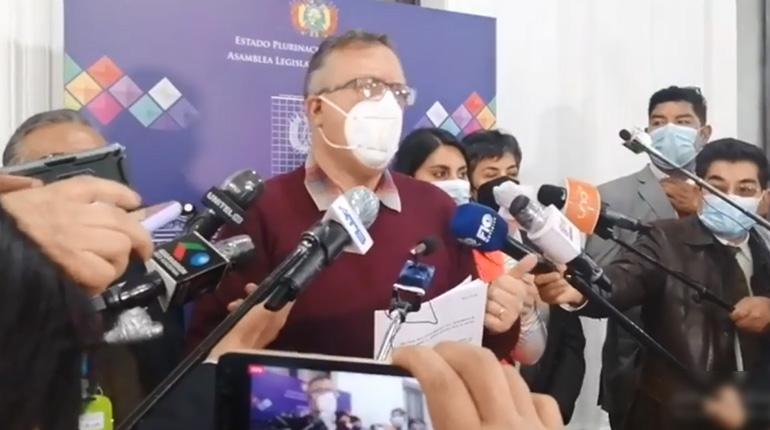RIO DE JANEIRO, BRAZIL – The main opposition party in the Bolivian Parliament, Comunidad Ciudadana (CC), of former president Carlos Mesa, formally objected Wednesday (4) to the determination of the Prosecutor’s Office to close the investigations of the 2019 “electoral fraud” case.
The heads of CC bench in the Chamber of Deputies, Carlos Alarcón, and in the Senate, Andrea Barrientos, informed the media this Wednesday in La Paz that they had presented a written objection to the dismissal of the case called “electoral fraud”.
Read also: Check out our coverage on Bolivia
“We as victims of electoral fraud when we were candidates in the 2019 elections, are filing this objection to the dismissal, and on that basis, we expect and demand the Departmental Prosecutor’s Office of La Paz to revoke that dismissal decision,” said Alarcón.

If the objection is rejected, CC is preparing a legal action “for denial of justice to the millions of Bolivians who want legal and criminal responsibilities to be determined” regarding the electoral fraud in 2019, he added.
If the judicial actions do not prosper and the internal route is exhausted, Mesa’s party will turn to international instances to protect fundamental rights, indicated the parliamentarian, who was Vice Minister of Justice during Carlos Mesa’s presidency.
The Prosecutor’s Office decided to close the case last week based on an expert examination of the electoral process, which concluded that “there was no manipulation” of the results in the annulled elections in 2019. However, some deficiencies were found that did not jeopardize the integrity of the electoral process.
The expertise presented by the Prosecutor’s Office opposes the results of the audit of the Organization of American States (OAS) that detected “severe” irregularities such as the manipulation of the computer system for the transmission and computation of results.
Alarcón described as “unconstitutional” the decision of the Public Ministry because “it is based on a private document” which was “illegally” incorporated into the investigation process without having “the consistency of the quality of a real expertise”.
The opposition force Creemos, led by the governor of the Santa Cruz region, Luis Fernando Camacho, denounced the day before that the Public Prosecutor’s Office rejected its right to challenge the closing of the case and denounced a “submission” of Justice to the governmental Movement Towards Socialism (MAS).
The Creemos senator Centa Rek questioned that the Prosecutor’s Office dismissed the OAS report and warned about a “shameful partiality” on the Public Prosecutor’s Office that “only used what was useful” to affirm that there was no fraud.
Bolivia was plunged into a social and political crisis following the October 2019 elections, which were later annulled amid allegations of electoral fraud in favor of then-President Evo Morales.
Following the OAS report, which became known in the early hours of November 10, 2019, Morales first announced new elections and hours later resigned from the presidency claiming to be the victim of an alleged “coup d’état”.

